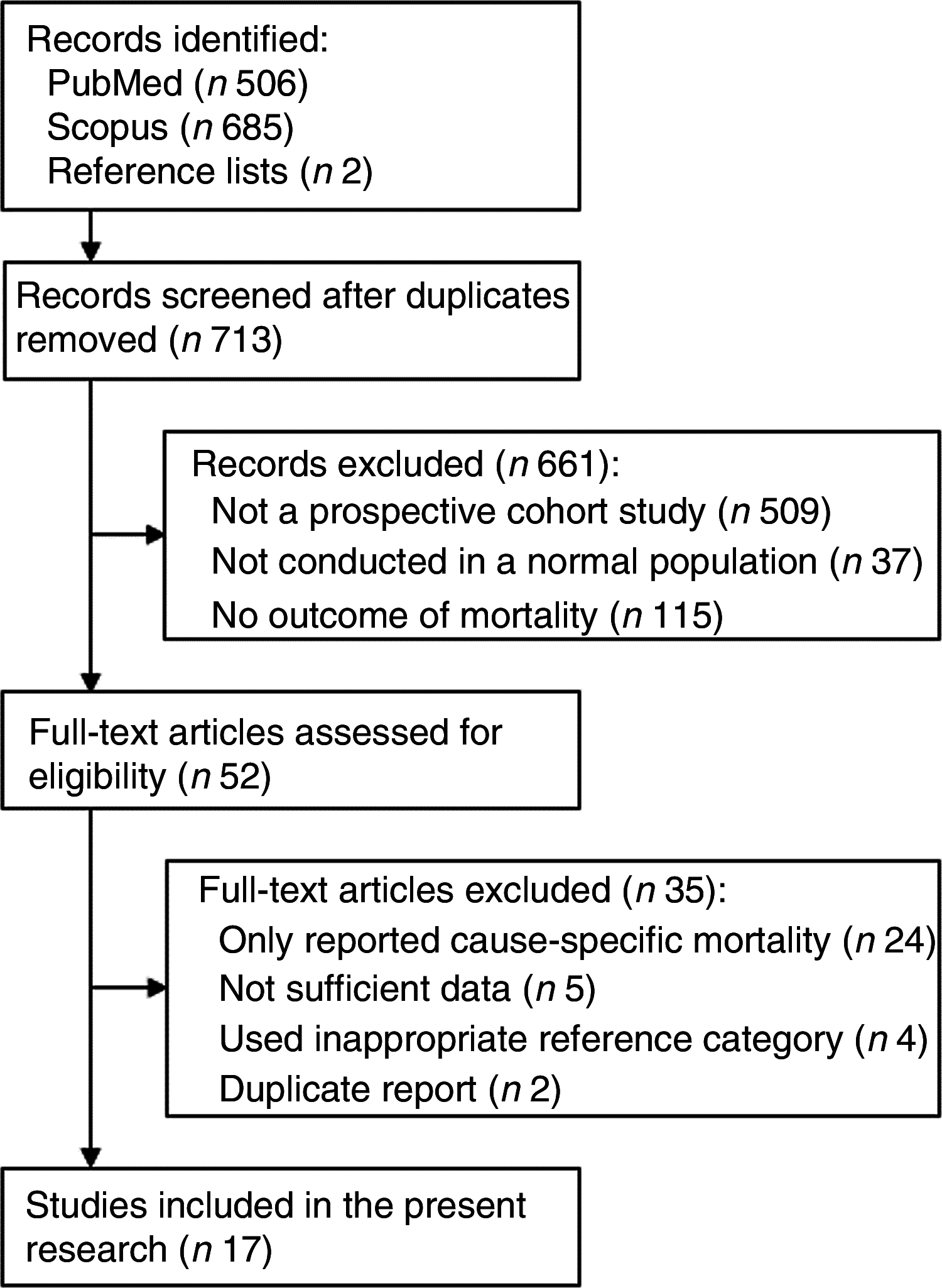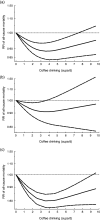Association of coffee drinking with all-cause mortality: a systematic review and meta-analysis
- PMID: 25089347
- PMCID: PMC10271516
- DOI: 10.1017/S1368980014001438
Association of coffee drinking with all-cause mortality: a systematic review and meta-analysis
Abstract
Objective: We aimed to use the meta-analysis method to assess the relationship between coffee drinking and all-cause mortality.
Design: Categorical and dose-response meta-analyses were conducted using random-effects models.
Setting: We systematically searched and identified eligible literature in the PubMed and Scopus databases.
Subjects: Seventeen studies including 1 054 571 participants and 131 212 death events from all causes were included in the present study.
Results: Seventeen studies were included and evaluated in the meta-analysis. A U-shaped dose-response relationship was found between coffee consumption and all-cause mortality (P for non-linearity <0.001). Compared with non/occasional coffee drinkers, the relative risks for all-cause mortality were 0.89 (95 % CI 0.85, 0.93) for 1-<3 cups/d, 0.87 (95 % CI 0.83, 0.91) for 3-<5 cups/d and 0.90 (95 % CI 0.87, 0.94) for ≥5 cups/d, and the relationship was more marked in females than in males.
Conclusions: The present meta-analysis of prospective cohort studies indicated that light to moderate coffee intake is associated with a reduced risk of death from all causes, particularly in women.
Keywords: Prospective cohort study.
Figures



References
Publication types
MeSH terms
Substances
Grants and funding
LinkOut - more resources
Full Text Sources
Other Literature Sources

